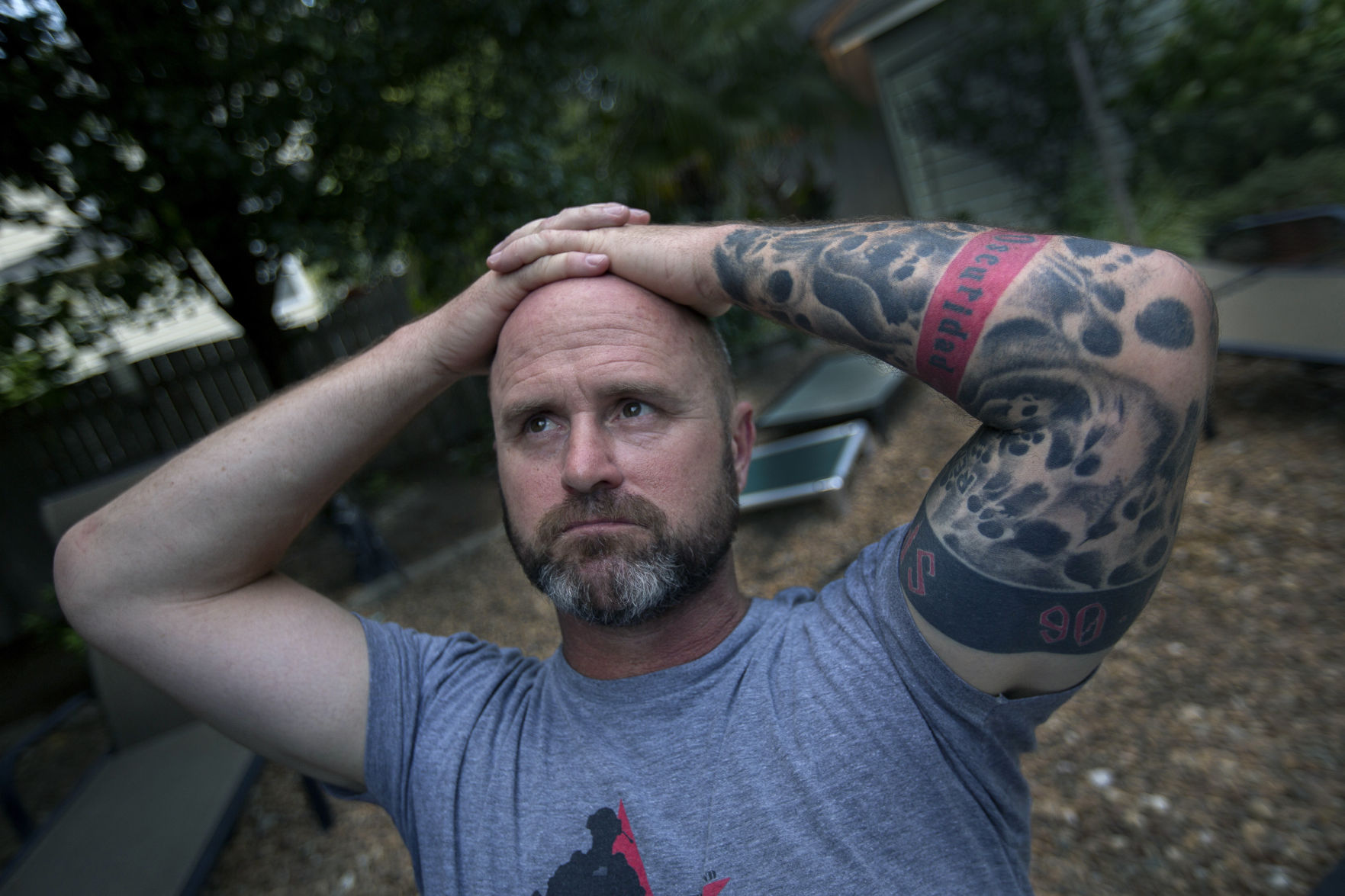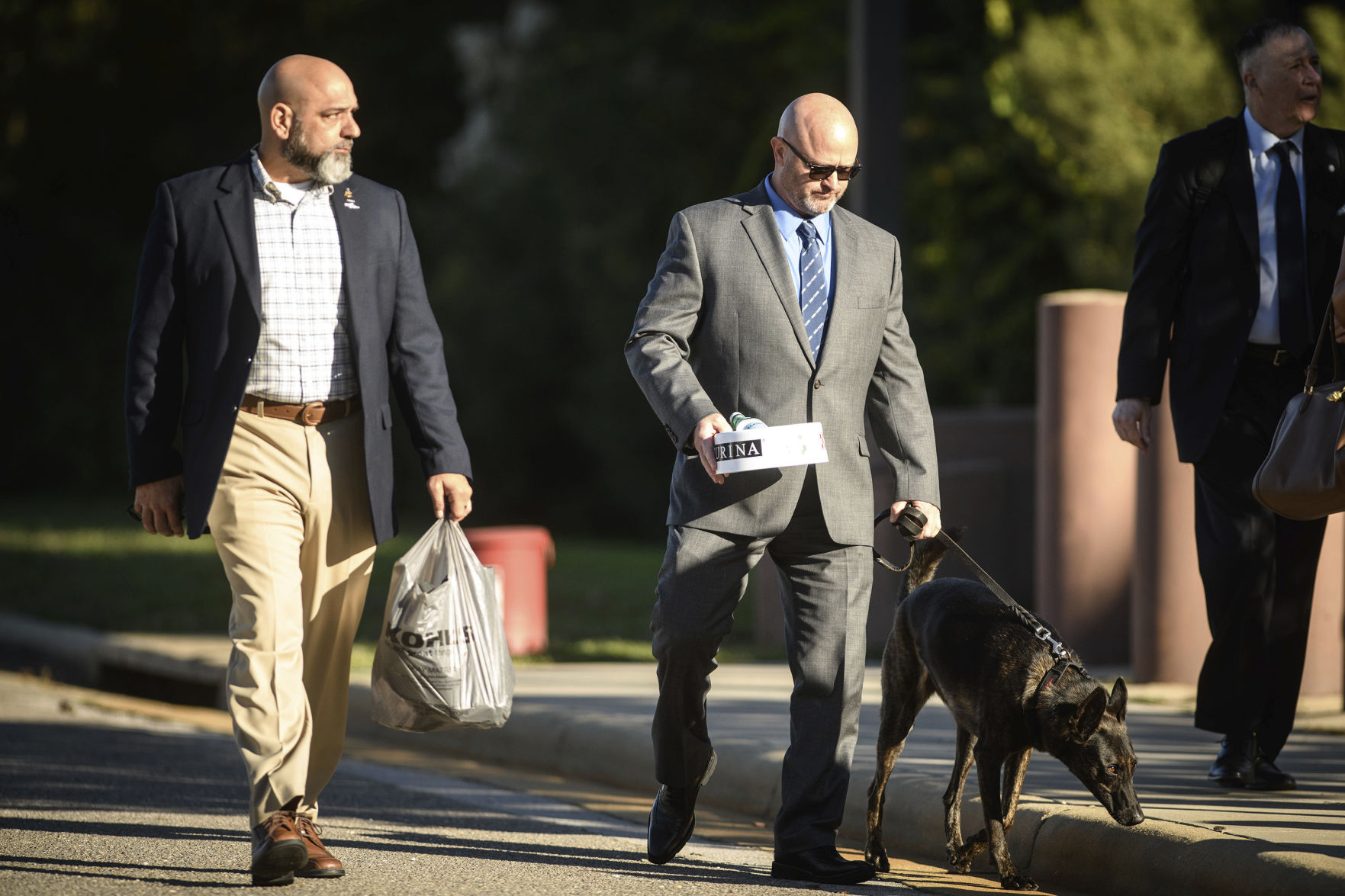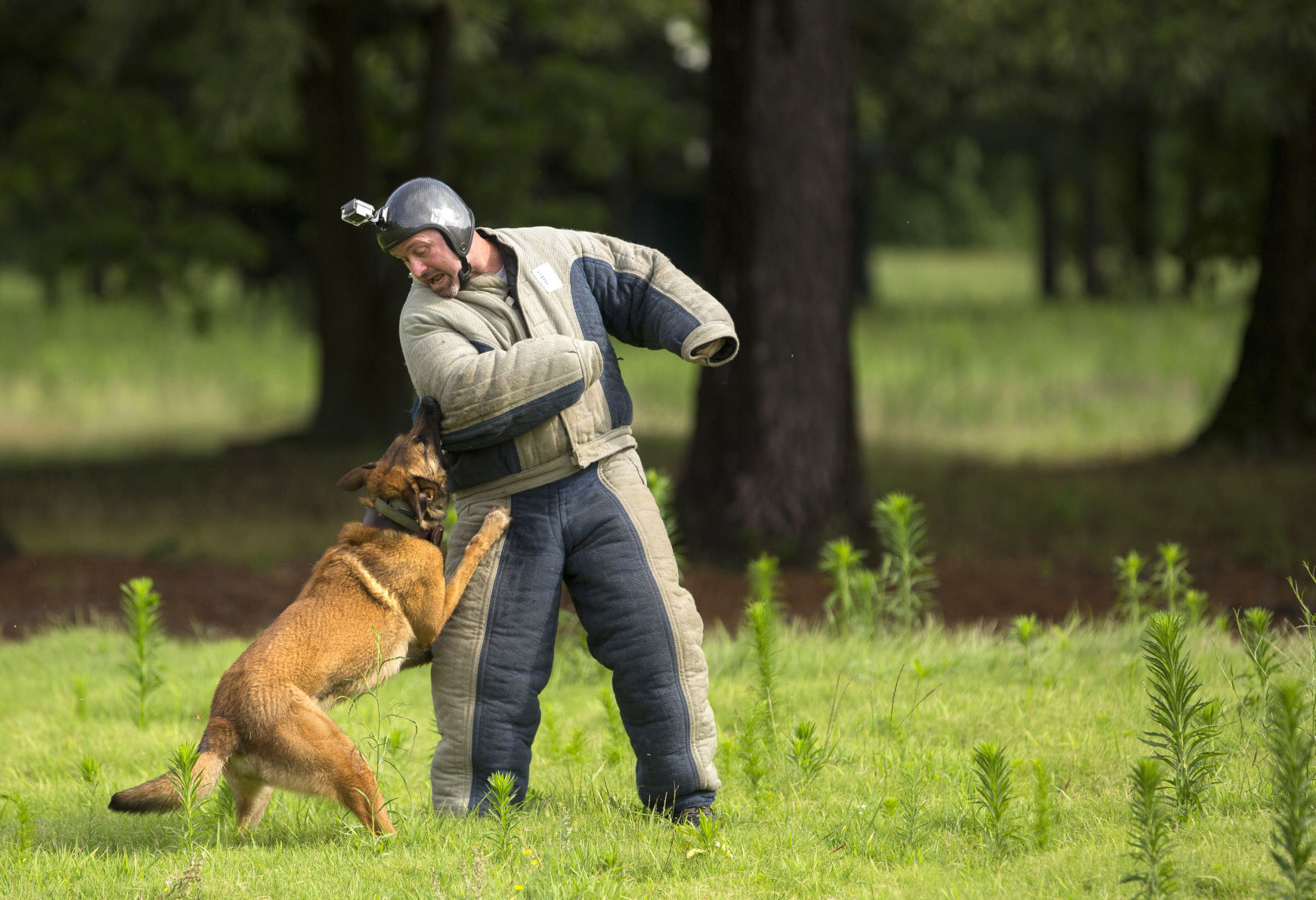FORT BRAGG, N.C. (AP) — Former Navy SEAL James Hatch, whose career as a commando ended when he was shot while searching for Bowe Bergdahl, said his feelings toward the Army sergeant have gone from “I would like to kill
FORT BRAGG, N.C. (AP) — Former Navy SEAL James Hatch, whose career as a commando ended when he was shot while searching for Bowe Bergdahl, said his feelings toward the Army sergeant have gone from “I would like to kill him” to thanking the soldier’s lead attorney for working so hard to defend him.
Hatch, who testified this week at Bergdahl’s sentencing hearing on charges he endangered comrades by leaving his post in Afghanistan in 2009, has had eight years to think about the nighttime raid that ended with insurgent AK-47 spray ripping through his leg.
Sent home, he sank into a depression he nearly didn’t survive. Through therapy, charity work with dogs and a cathartic book-writing process, his thinking has evolved on more than a few things — including Bergdahl’s fate.
In an interview with The Associated Press, the retired senior chief petty officer said he’s still angry at Bergdahl but doesn’t envy the military judge who must decide his punishment after sentencing resumes Monday.
———
FROM RAGE TO PEACE
“It has gone from ‘I would like to kill him’ to ‘he should go to jail forever,’ to where I’m at now, which is far more peaceful. Having spoken to others who are aware of more of the details of his walking off, and his treatment once he was captured, I am very happy that I do not have to choose what happens to him,” Hatch said.
Still, he said, it’s important that Bergdahl not receive an honorable discharge.
“The most important thing to me personally is that I would hope that he would be dishonorably discharged, and therefore ineligible for the benefits that veterans that have served with honor are eligible for,” Hatch said.
Bergdahl faces up to life in prison after pleading guilty to desertion and misbehavior before the enemy for leaving his post in Afghanistan in 2009, but the military judge has wide leeway to determine a sentence.
Hatch said he wants Bergdahl to have a fair hearing, and appreciates the hard work of all involved — even the defense. He had a cordial encounter with Bergdahl’s lead attorney, Eugene Fidell, at breakfast in the hotel where both were staying this week.
“I shook his hand, and I said: ‘Thank you for being a good American and taking care of that kid even though I don’t care for him,'” he said. According to Hatch, after the two chatted awhile, Fidell “put his arm around me and said: ‘Hey, your fly is open.'”
“How can you hate a guy like that?” Hatch said.
Fidell said his interactions with Hatch have been pleasant, calling him a patriot who sacrificed for the country.
“I think it would be wonderful if, after the case is over, Senior Chief Hatch and Sgt. Bergdahl could sit down one on one,” Fidell said. “I know Sgt. Bergdahl would like to do that.”
———
FINDING PURPOSE
During testimony, Hatch spoke stoically about his own wound during a July 2009 search mission and the 18 surgeries he’s had. But he cried when discussing the military dog, Remco, who died in the same barrage of gunfire. Hatch credits the dog’s handler, another member of his team, with helping to save his life.
“I knew going into that line of work that was a possibility. That dog didn’t have a clue,” he told AP, explaining his strong emotions. “It is incumbent upon us to protect them. They provide us with their senses and their courage, but they don’t understand bullets. We failed. I, in particular, I failed to protect that dog.”
Another military dog, Spike, is the namesake of a nonprofit group Hatch started to support military and law enforcement canines. Hatch was Spike’s handler when that dog died on a mission in Iraq.
Hatch, now 50, said the inspiration for Spike’s K9 Fund came out of a dark time in the months after he returned wounded from the 2009 mission to find Bergdahl.
“I just was washing down my pain meds with booze,” he said. “I wanted to be a zombie and I didn’t want to be alive anymore.”
Police in Norfolk, Virginia were called to his house because he was suicidal and “acting a fool with a gun,” he said. Officers called men Hatch had served with, who helped get him treated for depression. As a thank you, he helped raise money for the care of a police dog. Now, his charity — which he refers to as “my purpose”— also helps with medical expenses for families who take in retired military dogs.
Writing a book about his life, due out in 2018, with a longtime friend has also been therapeutic.
“It’s one thing to go to a psychologist or a social worker and talk to them about things that are troubling you right now,” said Hatch, who grew up in Utah. “It’s another thing entirely when you’re doing it with someone who’s known you for 15 years through many of the big trials, so that you have a backstop about where those emotions may have come from.”
———
Follow Drew at www.twitter.com/jonldrew




